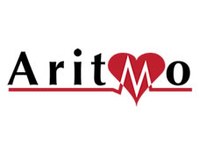
The ability of some compounds to prolong the QT interval of the electrocardiogram and to precipitate Torsade de Pointes (TdP, a potentially fatal arrhythmia) has caused several regulatory interventions, including drug withdrawals. Specific guidelines have been implemented to detect QT liability of new compounds as early as possible. However there is growing evidence that an increase in the QT interval does not necessarily lead to TdP which further increased the regulatory and clinical difficulties. This proposal will assess the arrhythmogenic potential of antipsychotics, antihistamines and anti-infectives (> 250 compounds). It will fulfill this aim by: reviewing the literature on in-vitro and in-vivo preclinical evidence; conducting in-silico modeling to predict the arrhythmic potential through target profiling and docking molecules in existing atomistic models and predicting the effects on hERG K+, Na+, Ca++ channels; analyzing the information in national and international pharmacovigilance DBs of spontaneous reports; conducting prospective case control surveillance on symptomatic QT prolongation; conducting cohort studies in psychiatric and hematology patients; analyzing information from existing studies to assess the association between drug use and various arrhythmia outcomes; and collecting blood samples from cases and drug-matched controls to investigate potential effect modification by candidate genes and a hypothesis generating approach including more than 2000 genes. Healthcare DBs on 27 million persons in 5 countries will be used to calculate rates and relative risks of arrhythmic events during drug use. Predictions on arrhythmic potential will be compared with actual postmarketing risk to assess the predictive value of preclinical markers. All information will be integrated to allow for ranking the arrhythmic potential of all the 250 study drugs and creation of risk charts that will allow for more informed treatment and decision making.
Coordinator
ERASMUS UNIVERSITAIR MEDISCH CENTRUM ROTTERDAM (The Netherlands)
Other participants
ALMA MATER STUDIORUM-UNIVERSITA DI BOLOGNA
- Dip. di Farmacologia
- Resp. Scientifico : Prof. Fabrizio De Ponti
FUNDACIO IMIM (Spain)
LONDON SCHOOL OF HYGIENE AND TROPICAL MEDICINE
(UK)
UNIVERSITAET BREMEN (Germany)
UNIVERSITY OF NEWCASTLE UPON TYNE (UK)
UNIVERSITE VICTOR SEGALEN BORDEAUX II (France)
FONDAZIONE SALVATORE MAUGERI CLINICA DEL LAVORO E DELLA RIABILITAZIONE (Italy)
CHARITE - UNIVERSITAETSMEDIZIN BERLIN (Germany)
UNIVERSITA DEGLI STUDI DI VERONA (Italy)
ST GEORGE'S HOSPITAL MEDICAL SCHOOL (UK)
ASTRAZENECA AB (Sweden)
PHARMO COOPERATIE UA (The Netherlands)
FONDAZIONE SCIENTIFICA SIMG-ONLUS (Italy)
AARHUS UNIVERSITETSHOSPITAL, AARHUS SYGEHUS (Denmark)
ACADEMISCH MEDISCH CENTRUM BIJ DE UNIVERSITEIT VAN AMSTERDAM (The Netherlands)
DRUG SAFETY RESEARCH TRUST (UK)
Start date 01/01/2010
End date 30/06/2013
Duration 42 months
Project Reference 241679
Project cost 3.618.239,40 EURO
Project Funding 2.748.319 EURO
Area FP7-COOPERATION-HEALTH
Subprogramme Area Study of the Arrhythmogenic potential of different classes of medicines
Contract type Collaborative project-Small or medium-scale focused research project
